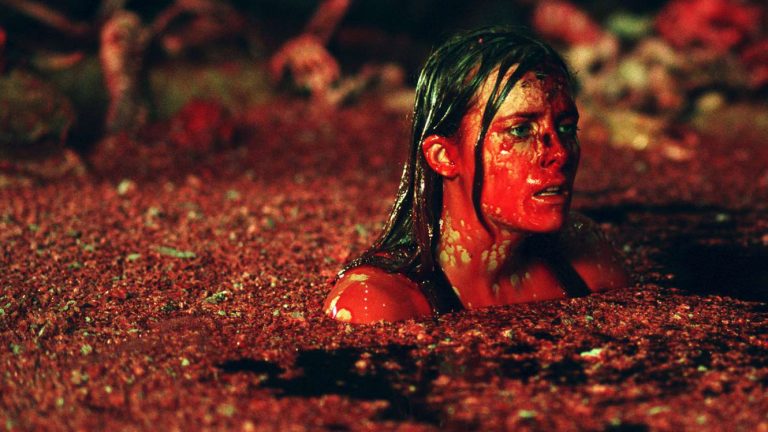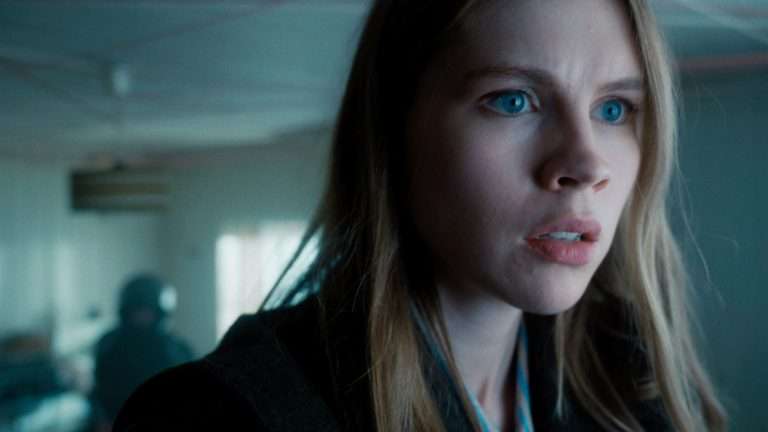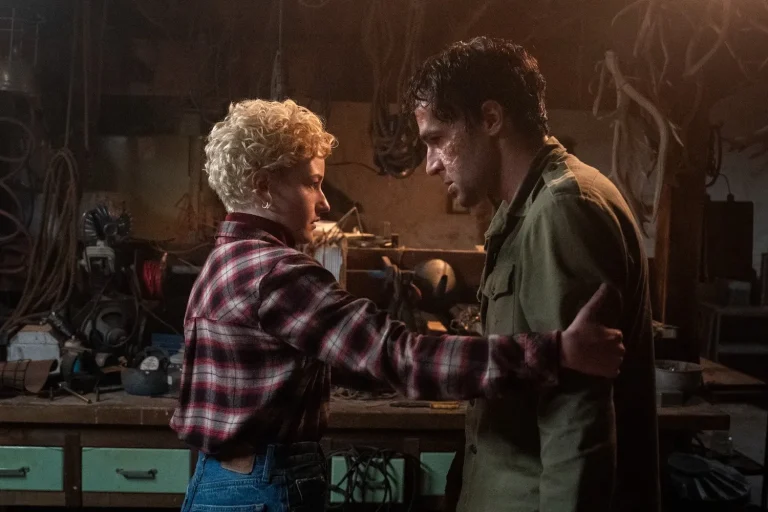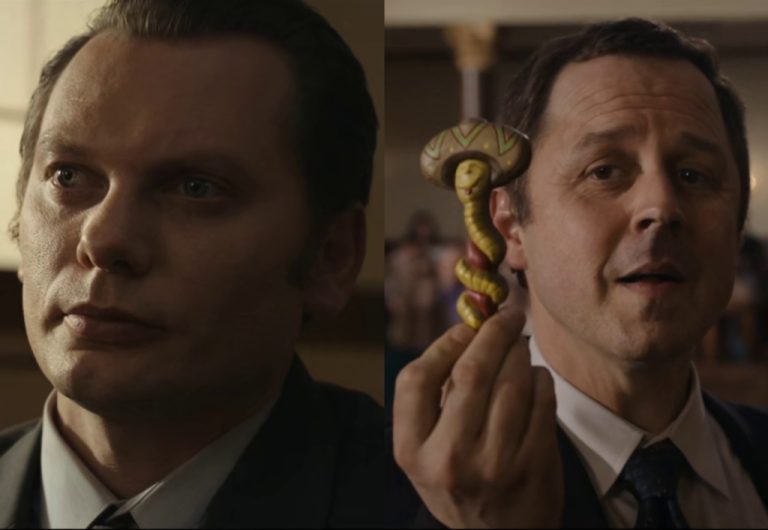Bollywood currently stands at an exciting crossroads. Some of the biggest (and rarest) hits this year have been films that either had a brand of filmmaker to back them (“Gangubai Kathiawadi,” “Brahmāstra“) or the ever-so-growing amount of status quo-pleasing films. One also doesn’t need to look deeper to notice the massive scale at which the industry has been churning out our homegrown remakes lately. The newest of them all, Vikram Vedha (2022), turns its gaze towards setting its characters in the Hindi heartland of Uttar Pradesh. I haven’t watched the original 2017 Tamil film but was fascinated by what made the same filmmaker duo, Gayatri-Pushkar, take on the project of remaking it in Hindi. I found it difficult to ask that question throughout the 160-minute runtime of the movie, as it shamelessly exploded with filmmaking gimmickry, having two charismatic actors front and center of it.
The film opens with a stylized encounter scene that follows the conventions out of the textbook for any action thriller while reserving the much-needed hijinks for slow mos as we’re introduced to Vikram (Saif Ali Khan). While checking the crime scene, his team realized that one guy who was killed had no weapon in his possession and was presumably innocent. Realizing that this can put them into trouble, Vikram casually tells his colleagues to plant a weapon in his hand and make it seem as if he fired at the cops first, and the team acted out of self-defense. The film cleverly sets this up as if it’s routine; you instantly get the rulebook Vikram seems to function on. Incidentally, this all connects to Vedha (Hrithik Roshan), who seemed missing from the encounter site. We learn that Vedha is a notorious gangster based in Lucknow who has committed 16 murders. The Uttar Pradesh police created a Special Task Force (STF) to finish him and his gang, headed by Vikram and his best friend Abbas (Satyadeep Mishra).
VIkram Vedha (2022) sets up the mounting myth and looming presence of Vedha really well, referencing his way of functioning through routine conversations. Almost 30 minutes into the film, when Vedha finally walks into the police station surrendering to the team, as the audience, you instantly feel gratified, knowing it would deliver exactly what the weight of remaking a film in Hindi carries. Soon, a quest for integrity in a world morally devoid ensues. While Vikram inhabits the character of the tough cop with conviction, wearing his external toughness on the sleeve, Vedha’s hazel-brown eyes sparkle with the very spontaneity that his personality exudes – you almost see the hundred stories and lives he’s tried living in the past. The cop’s wife, Priya (Radhika Apte), serving as the lawyer to the ungodly Vedha, adds a nice touch to the theme of moral ambiguity that stays at the center of the screenplay.
Films have incorporated the theme of good and evil belonging to the two sides of the same coin forever. What makes a film stand out is the type of cultural rootedness and treatment it gets from its makers. Based on the famous mythical tale of Vikram and Betaal, the movie opens with animations from the fable. Soon, the film adroitly juxtaposes the mythic tale with the capital city of Uttar Pradesh. Every crucial encounter between Vikram and Vedha ends in the manner of a fable with a question, encompassing morally important themes centered on good and evil, the nature of culpability, and the overall dynamics of revenge and justice. Which one of them is morally superior? What is right and what is wrong? It is a superb form of exposition that the movie dumps obliquely through its three-act structure, giving the makers an excuse to embrace the pulpy nature a saga of this sort demands. Through a series of flashbacks that spring out of twisted and drawn-out tales that Vedha narrates to Vikram, the movie willfully makes us root for the former’s motivations while handing us the remote that dictates the moral dilemma at its center.
One of the main justifications for remaking a film that’s not-so-old is that it should rightfully warrant the need for the setting to impose onto the movie’s main characters. This remake, however, so snobbishly moves through its checkpoints that it doesn’t give you any room to breathe into its philosophical strongholds. By placing two opposing figures- one of a policeman who thinks he does things justly, the other of an urban brigand- against each other, “Vikram Vedha” tries to get at what separates a man from his mission while highlighting the grey line separating the wrong and the right. But we get almost little to no insight into Vikram’s introspective process after being thrown into a dilemma that shakes his core belief away from the system under which he functions.
Some of the action choreography and production design in Vikram Vedha (2022) genuinely remain outstanding, some of the best we’ve seen from Bollywood lately. P S Vinod’s cinematography exuberates with a distinctive visual texture; we are made aware of the film’s tone right through its opening long-take. There are nods to certain characters’ earlier works and even a dialogue reference by Roshan to a famous line from “Agneepath.” Although there are points in the unevenly paced second half that lack a certain stylish tackiness (except an incredible music number, “Alcoholic”), “Vikram Vedha” beats loudly even along its shortcomings with aplomb command, thanks to the lead actors’ magnetic screen presence. This remake could’ve worked almost perfectly with a little more honest attempt at exploring how the mechanics of the current sociopolitical world imposes onto this age-old tale. At least this way, we finally got to watch Roshan dance on the screen again in a look we’d never seen him before. Maybe that’s what the industry needed sooner this year.





![Throne of Blood [1957] Review – Akira Kurosawa’s misfire](https://79468c92.delivery.rocketcdn.me/wp-content/uploads/2020/04/Throne-of-Blood-768x432.jpg)

